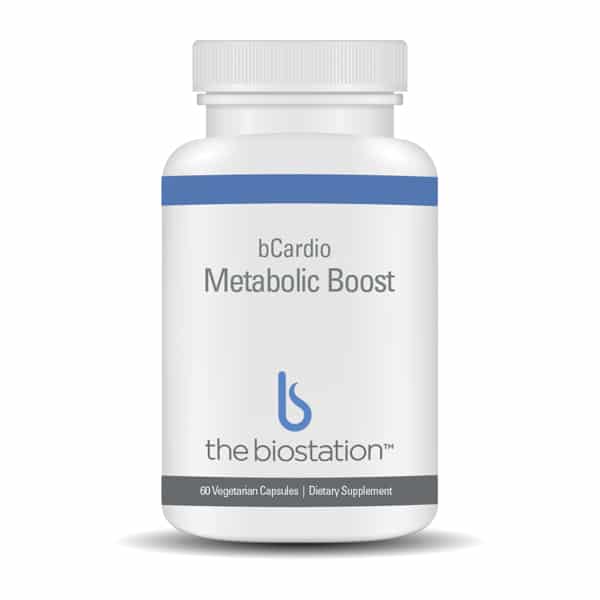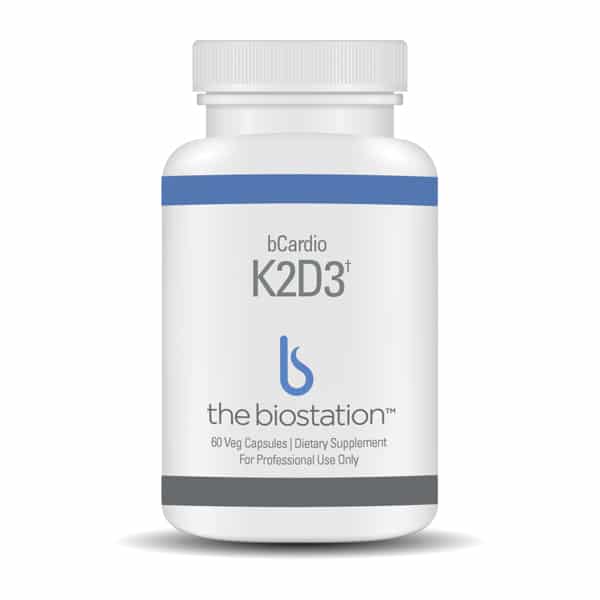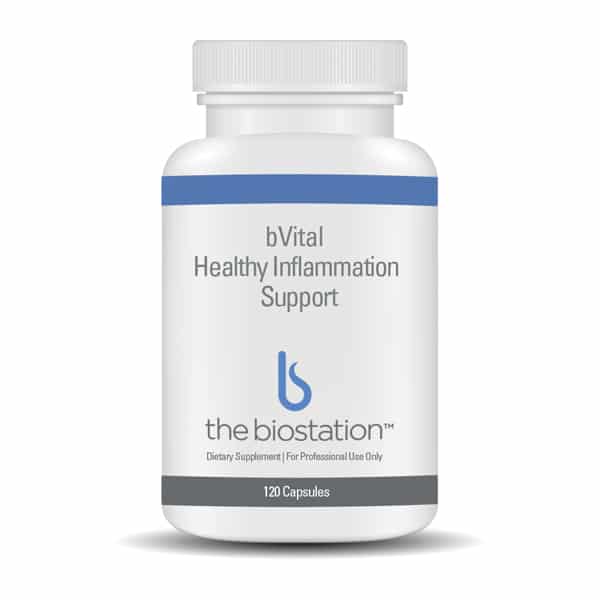bCardio Homocysteine Support
For the maintenance of healthy homocysteine levels
Excess homocysteine in the circulation can damage the lining of arterial walls, making them narrow and inelastic. Research suggests that a raised homocysteine level is an independent risk factor for hardening of the arteries, coronary heart disease, stroke, peripheral vascular disease and other conditions associated with abnormal blood clotting. Elevated homocysteine is also linked with a number of other serious medical conditions including depression, osteoporosis, Alzheimer’s disease, multiple sclerosis, rheumatoid arthritis, spontaneous abortion, placental abruption, neural tube defects (spina bifida, cleft palate, etc), renal failure, and type II diabetes.
What is homocysteine?
Homocysteine is produced by the demethylation of dietary methionine which comes from protein-containing foods. It is recycled back into methionine through a pathway that involves vitamin B12 in the form of methylcobalamin (which remethylates it) and folate. Homocysteine is simply an intermediate in a very important biochemical pathway. Plasma homocysteine can also travel another route which involves the passing of sulfur groups (transsulfuration). This is vitamin B6-dependent and results in the production of cysteine which can convert into glutathione, the most important antioxidant in the body.
Category
- heart health
What causes homocysteine to become elevated?
Any roadblock in this pathway can cause homocysteine to elevate. When we intricately study the biochemistry of the homocysteine pathway we can see that it involves a series of conversions that require enzymes. Several nutrients, especially B vitamins, are needed for these conversions to occur. Stress can deplete B vitamins, as can many medications.
The Comprehensive Metabolic Profile (CMP) test offered by Designs for Health can pinpoint B vitamin deficiencies. It is also important to test the body’s homocysteine levels. Performing both tests on women wishing to get pregnant could reduce the risk of neural tube defects and pregnancy complications. All patients with homocysteine levels above 7 are in need of intervention, with bVital cardio being an ideal recommendation. Patients with a family history of early heart attacks or depression are also prime candidates for such intervention.
What are ideal homocysteine levels for patients?
Initially, levels between 8 and 15 micromol/L were considered ideal. Research suggests maintaining even tighter control of homocysteine levels above 6.9 micromol/L may be harmful to long-term health. A rise in serum homocysteine of 5 micromol/L may increase cardiovascular risk by 20% to 30%. Homocysteine levels tend to rise with age; folate and B12 absorption decline in the elderly so they may require higher doses of these nutrients to lower their homocysteine levels effectively. Also, medications commonly taken by these individuals deplete folates, such as ibuprofen and other NSAIDs.
bVital cardio includes our proprietary NatureFolate™ blend of active isomer, naturally-occurring folates. Research shows that supplementing 2-7 mg of folates daily helps to reverse plaque and prevent stroke. Research also shows that doses above 1000 mcg of B12 get absorbed effectively even without intrinsic factor.
How and how often should homocysteine levels be tested?
Microcrystalline cellulose, silicon dioxide, vegetable stearate.
Serving Size 2 capsules
Servings Per Container 60
| Nutrient | Amount per Serving | % Daily Value |
|---|---|---|
| Riboflavin (as Riboflavin-5-Phosphate) | 30 mg | 2308% |
| Vitamin B-6 (as Pyridoxal-5-Phosphate) | 10 mg | 588% |
| Folate (as Quatrefolic® [6S]-5-methyltetrahydrofolate, glucosomine salt 4000 mcg) | 3,400 mcg DFE | 850% |
| Vitamin B-12 (as Methylcobalamin) | 1,000 mcg | 41,667% |
| Trimethylglycine (TMG) | 900 mg | * |
| N-Acetyl-L-Cysteine (NAC) | 100 mg | * |
*Daily Value not established.
 East Delray, Florida
East Delray, Florida West Delray, Florida
West Delray, Florida The Boca Raton, Florida
The Boca Raton, Florida Midtown Miami, Florida
Midtown Miami, Florida Carillon Wellness Resort
Carillon Wellness Resort  Midtown Tampa, Florida
Midtown Tampa, Florida Grand Wailea
Grand Wailea  NOW OPEN
NOW OPEN 


